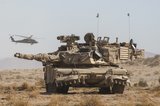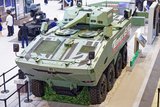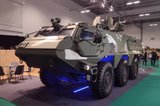NSPA orders Saab RBS 70 Bolide missiles
The NATO Support and Procurement Agency (NSPA) has awarded an order for RBS 70 Bolide missiles to Saab, the company announced on 13 January.
The deliveries under the $12.38 million order will be made between 2016 and 2017.
The Bolide missile is the 4th generation all-target very short range air defence (VSHORAD) missile. The RBS 70 system is designed to provide protection from a wide range of threats such as fixed and rotary wing aircraft, cruise missiles and UAVs, with a range of over 8km and with altitude coverage of up to 5,000m.
The order is a part of NSPA’s long term plan to improve its air defence capabilities.
Stefan Öberg, head of missile systems, Saab, said: ‘This is a great order for Saab and it will further improve the customer's capabilities and place it on the forefront when it comes to air defence systems. This order is a proof of their trust in our knowledge and in the RBS 70 system.’
Related Equipment in Defence Insight
More from Land Warfare
-
![World Defense Show 2026: Saudi Arabia’s record defence spend highlights uncertain times]()
World Defense Show 2026: Saudi Arabia’s record defence spend highlights uncertain times
Saudi Arabia’s investment in its land forces, notably in the area of air defence as recently as 30 January, is a sign of the challenges the Gulf State faces, particularly the threat from Houthi rebels in Yemen.
-
![Singapore Airshow 2026: ST Engineering’s Terrex s5 highlights hybrid power’s role in future warfare]()
Singapore Airshow 2026: ST Engineering’s Terrex s5 highlights hybrid power’s role in future warfare
Hybrid-electric drive technology may address the growing energy demands of land warfare in future.
-
![CAVS rides a wave and prepares for surge requirements as orders roll in]()
CAVS rides a wave and prepares for surge requirements as orders roll in
The Common Armoured Vehicle System is continuing to rack up orders as the British Army looks likely to become an operator of the vehicle, while Italy and Ireland are also contenders.
-
![US DoD task force’s DroneHunter acquisition lays groundwork for Replicator 2 CUAS strategy]()
US DoD task force’s DroneHunter acquisition lays groundwork for Replicator 2 CUAS strategy
As the US Department of Defense looks to counter the growing threat of uncrewed aerial systems to improve homeland security, the DroneHunter acquisition could point to future commercial innovation.
-
![Land forces review: Tanks, trucks and IFVs dominate but woes remain for Ajax]()
Land forces review: Tanks, trucks and IFVs dominate but woes remain for Ajax
This year has begun with main battle tanks taking the lead while orders for large logistics and support vehicles continued from last year. Additionally, two of the British Army’s most significant contracted vehicle programmes, Ajax reconnaissance vehicle and Challenger 3 tank, continued to make news in January.























